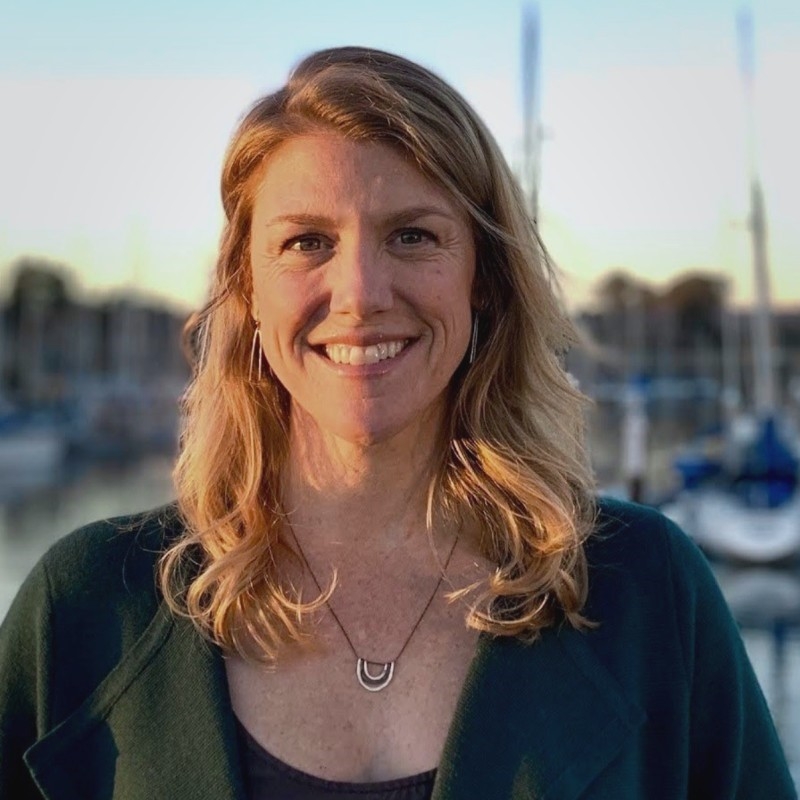Seafood Industry-led Efforts to Address the Deadliest Form of Marine Plastic Debris
–
McGowan MG102McGowan Building
411 Pacific St
Monterey, CA 93940 View in Campus Map
Free
Open to the Public

Lost, abandoned, or discarded fishing gear aka “ghost gear” makes up 70- 86% of floating microplastic debris in the ocean gyres.
Seafood Industry-led Efforts to Address the Deadliest Form of Marine Plastic Debris
Speaker: Sara Pfeifer, Partnerships Manager, Corporate, Global Ghost Gear Initiative
Monday, September 30, 2024
6:00pm to 7:30pm Pacific Time
In-person event (Zoom TBD)
McGowan 102
411 Pacific Street, Monterey, CA 93940
About the Topic
Marine plastic pollution often conjures the image of bags, straws, or other single-use packaging items floating aimlessly in the aquatic environment or sullying otherwise beautiful beaches. In response, seafood brands are making earnest commitments around managing their plastic footprint. However, with recent data revealing that 70- 86% of floating microplastic debris in the ocean gyres is comprised of lost, abandoned, or discarded fishing gear (ALDFG) or “ghost gear,” it is increasingly evident that ghost gear presents a tremendous opportunity for impact in the realm of plastics management. Not only does fishing gear represent a relevant element of the broader plastics dilemma, it also may be diminishing the longevity of the seafood industry. Lost fishing gear is the deadliest form of marine plastic pollution, resulting in the depletion of up to 30% of harvestable fish stocks annually. The Global Ghost Gear Initiative (GGGI) is the world’s premier cross-stakeholder alliance dedicated to the issue of ghost gear. In addition to the GGGI’s efforts to unite governments, multilaterals, research institutions, non-profits, and the technology sector, we work collaboratively with the seafood industry to develop custom-tailored solutions to addressing ghost gear in the seafood supply chain. This panel discussion will showcase GGGI’s strategy to drive commitments to address ALDFG- with a focus on gear loss prevention- from this faction of our membership.
About the Speaker
In November 2021, Sara joined the Global Ghost Gear Initiative (GGGI) team in the role of Partnerships Manager. Her position provides support and tools to GGGI’s private-sector members and establishes new systems to enhance existing partnerships. Sara works closely with members to implement GGGI’s Best Practice Framework by co-developing work plans to substantively reduce the occurrence of gear loss in their supply chains, track and measure progress, and identify opportunities for further engagement and collaboration. She holds a master’s in international environmental policy (IEP/OCRM 2015), and brings a technical skill in marine resource management, grounded in stakeholder engagement, with groups ranging from subsistence fishermen in El Salvador to the U.S. National Marine Sanctuary.
Prior to coming to OC, Sara was a resource planner for the California Coastal Commission, spent time in Mexico as a contractor for the Audubon Society and The Nature Conservancy, and launched an NGO to promote agricultural resilience. She is thrilled to be focusing her efforts on the international space again, and for the opportunity to build expertise around and contribute to an issue as urgently important as ghost gear. Sara’s commitment to marine conservation stems from a childhood spent marveling at life underwater in her native southern California. She enjoys traveling with her family (especially to surf), spearfishing in warm waters, and cooking outside over an open flame.
Recommended Reading
- Global estimates of fishing gear lost to the ocean each year (lead author is Kelsey Richardson, IEP/OCRM 2015)
- 2023 Global Ghost Gear Initiative Annual Report
Event Location: McGowan Building, Room 102
The McGowan Building is located at 411 Pacific Street, Monterey, CA, 93940, on the campus of the Middlebury Institute of International Studies. Attendees should enter through the glass doors from Pacific Street, and the MG102 is located inside to the right. View the campus map.
No Zoom this fall, but most lectures recorded
This fall, all classes are back 100% in-person, and our lecture series has followed suit. Zoom will not be an option for public participation, but in-person attendees are certainly welcome. Can’t make it in person? No problem! Most lectures will be recorded (as permitted by our speakers) and the videos uploaded to the CBE YouTube, with a link added to each event announcement as it becomes available.
Parking
Parking is available in any Middlebury Institute campus lot after 5 p.m., no parking permit required, no fee. View the campus map. (be sure to not confuse city lots with campus lots—city lots do charge a fee). Free parking is also available on the street (time limits on surrounding streets end at 6 p.m.).
Questions
Contact Rachel Christopherson at the Center for the Blue Economy at cbe@miis.edu or (831) 647-4183.
Gratitude to Our Sponsors
We thank the Loker Hicks Foundation and the Nancy Eccles and Homer M. Hayward Family Foundation our sponsors.
About the Host
The Center for the Blue Economy is a research center at the Middlebury Institute of International Studies, that provides economic and policy analysis to support the development of a robust and equitable blue economy for the 21st century. The Center uses the World Bank’s definition of the Blue Economy: the sustainable use of ocean resources for economic growth, improved livelihoods and jobs, and ocean ecosystem health. We must maintain ocean health to maintain human health, economic health, and the health of the planet. Climate change is linked, inextricably, to a healthy ocean. We are co-leading a movement for Ocean Climate Action Now. Consider joining our Center for the Blue Economy Newsletter List (3-4x per year by email).
